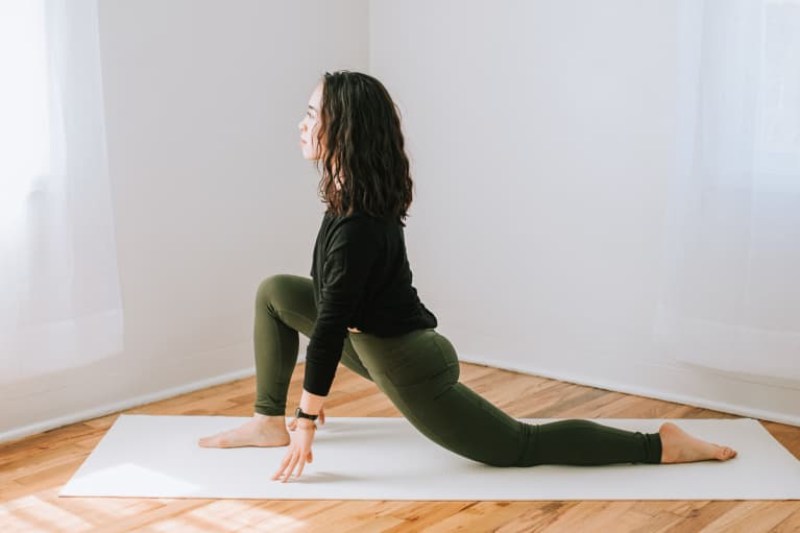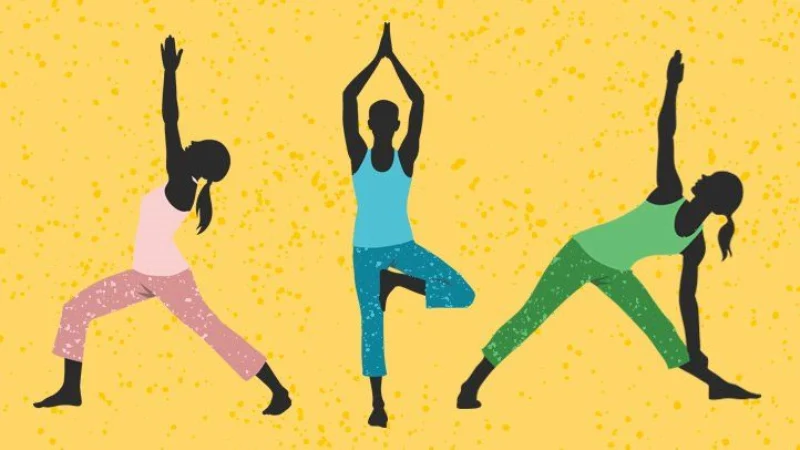"TamarSamirYoga is your online yoga studio that allows you to practice yoga at home 24/7. Find yoga videos, exercise programs, and articles on yoga & meditation."
Basically, yoga is the perfect type of movement to maintain your health, strengthen it preventively, support healing processes and support the chronically ill. Yoga not only builds muscles and reduces tension and stress, but also activates and harmonizes all of the body's own systems. In this way, it helps the body to keep itself healthy - and also effectively prevents lifestyle diseases such as poor posture and back pain or stress-related ailments such as insomnia and digestive disorders.

In addition, yoga is suitable for every age and every fitness level, because there is something suitable for everyone in the different yoga styles . So you don't have to be flexible, slim, or athletic to start yoga! Absolutely everyone is welcome to yoga.
The risk of injury is also very low with yoga: In the yoga class, great importance is attached to listening to your body, feeling your way into yourself and only pushing yourself as far as it is right for you today.
That would be our first and most important tip for a safe yoga practice that optimally promotes your health: Take your body's signals seriously! If you notice that you are out of breath and your breath is no longer flowing relaxed and evenly, if your muscles are so exhausted that you can no longer stand stable in the postures, or if you are feeling totally mentally exhausted at the moment, then just leave in the child's posture:
But even if yoga is a gentle, low-injury type of movement, not every yoga practice is suitable for everyone at all times. That's why we've put together a little health check for you here. When you have clarified all the points listed, you can (finally) devote yourself to practicing in a relaxed manner.
Talk to your doctor treating you!
If you have a severe physical, psychological or chronic illness or have to take strong medication, you should first clarify with your treating doctor to what extent yoga is suitable for you. If the person is not familiar with yoga, you should always ask which movements you should avoid and whether meditation and breathing exercises make sense for you. Then you can take care of yourself while practicing.

Depending on the illness, you should consider the following:
1. Is your back healthy?
Many people start yoga because they have back problems. Basically, this is a very good idea - yoga combats a variety of causes of back pain. However, caution should be exercised with serious problems such as a herniated disc or after an accident. Please talk to your back expert first about which exercises are good for you and which you should avoid. You should also read our article about back-friendly yoga .
2. How are your joints doing?
The same applies to knee problems and other joint ailments. Basically, yoga improves the mobility of your joints and prevents injuries by strengthening the surrounding muscles. Especially with beginners, however, there is a risk that excessive ambition - in the form of a forced lotus position or uncontrolled jumps, for example - can damage the knees. If you have any problems, a clarification discussion with your doctor will help. You are also welcome to read our article on how you can practice yoga without straining your knees .
3. Do you have cardiovascular problems?

Even if you have high blood pressure, heart problems or metabolic disorders, you should first consult a doctor. Even though there are many studies that show the positive influence of yoga on high blood pressure and metabolic disorders, and that gentle yoga can not only support but even replace medicinal treatments: The final decision about whether yoga is good for you should be made together with the : the medic: meet in your confidence.
4. Do you have a thyroid disease or hormone-related symptoms?
If you suffer from ailments that are related to hormonal imbalances, i.e. thyroid problems, but also endometriosis, uterine diseases, extreme menstrual cramps or terrible problems, you must first clarify with your doctor in charge of the extent to which you can do hormonally effective yoga exercises. The shoulder stand regulates the hormonal balance of the thyroid gland and stimulates the production of certain hormones - making it the ideal position for people with hypothyroidism, but forbidden for anyone with abnormally enlarged thyroid glands!
Exercises from hormone yoga have a particularly strong effect on the hormone balance. This can be very helpful during menopause, for example, but unfortunately also has a positive effect on the growth of growths in the uterus (myomas, etc.) and similar problems.
5. Special case: mental illness and meditation
Meditation is a really effective method to improve your psychological wellbeing - the mind becomes clear, stress is relieved, the perspective on your life and the world becomes more relaxed. However, there are clinical pictures in which meditation practice is contraindicated. With schizophrenia and severe depression, you should not meditate, because this can worsen your well-being, because meditation can promote sinking into negative thoughts and inner imagery. But that shouldn't keep you from doing yoga as a whole: especially with depression, a gentle asana practice can work wonders!







